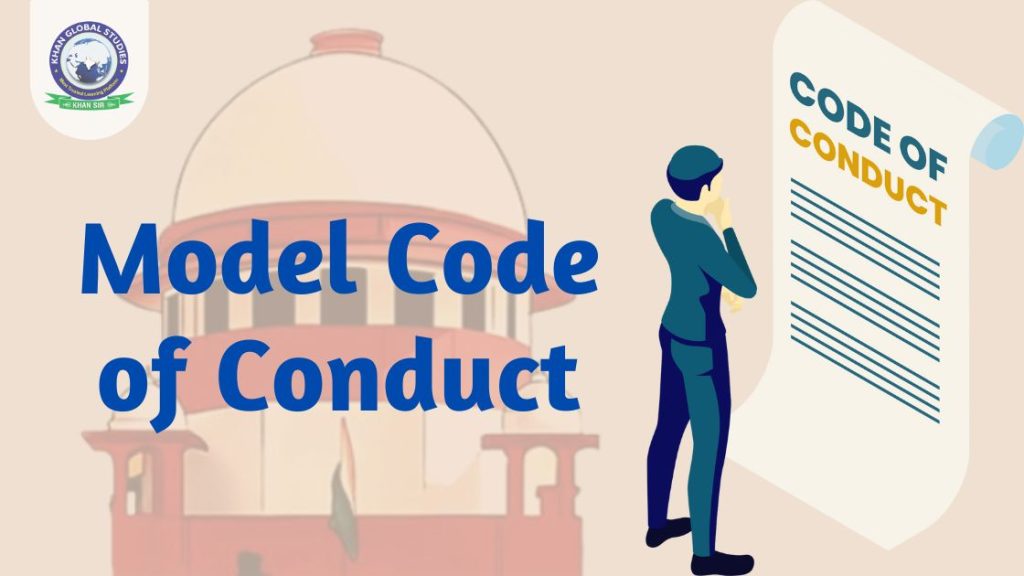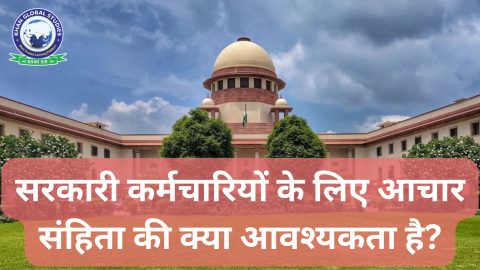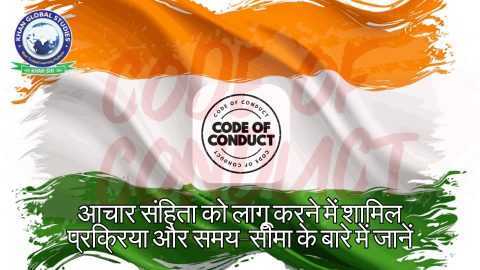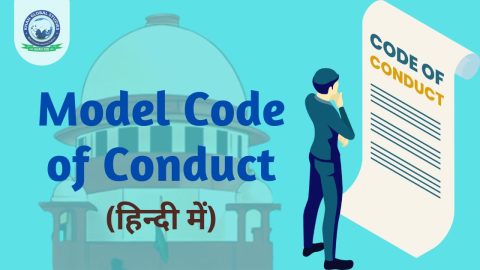Lok Sabha is the people’s house and currently, there are 545 members in the Lok Sabha. Lok Sabha elections are held every 5 years in the country. Now Lok Sabha elections are going to be held in 2024 also. With the start of the process of Lok Sabha elections, a code of conduct is imposed in the country, which is important to know because it is directly related to us.
About Lok Sabha
Lok Sabha is the People’s House and the supreme body of the Parliament. The strength of the Lok Sabha is 545, of which 530 represent all the states, 13 represent the Union Territories, and the President of India nominates the remaining 2. Members of the Lok Sabha are directly elected by a general election.
How many days before the Lok Sabha elections is the code of conduct imposed?
The code of conduct is also called the model code of conduct. It is a set of guidelines issued by the Election Commission to regulate political parties and candidates before elections to ensure free and fair elections. This is in line with Article 324 of the Constitution which gives the Election Commission the power to monitor elections to Parliament and state legislatures.
The code of conduct remains in force from the date of announcement of the election schedule till the date of declaration of results. In 2024 also, It will come into force with the announcement of Lok Sabha election dates and it will remain in force till the election results are declared in the country.
About the Model Code of Conduct
Model Code of Conduct is a set of guidelines issued by the Election Commission of India for the conduct of political parties and candidates during elections mainly concerning speeches, meetings, processions, polling day, polling stations, observers, parties in power and elections. The Election Commission has full authority to take necessary steps as per the provisions of the Model Code of Conduct to ensure free and fair elections. During this time, the President has the right to make major decisions in the interest of the country.
What is the History of the Model Code of Conduct?
A form of code of conduct was first introduced in state assembly elections in Kerala in 1960. This was a set of instructions to political parties regarding election meetings, speeches, slogans etc. The code of conduct has been implemented for the general elections of 1962. Lok Sabha. Shared among recognized parties and feedback sought from parties to state governments.
The Model Code of Conduct was followed by all parties in the 1962 elections and continued to be followed in subsequent general elections. In 1979 the Election Commission added a section to regulate the ‘party in power’ and prevent it from gaining undue advantage at the time of elections. In 2013, the Supreme Court directed the Election Commission to incorporate guidelines regarding election manifestos and included these in the code of conduct for the 2014 general elections.
What’s in a code of conduct and why is it significant?
After the implementation of the Model Code of Conduct in the country, no party or candidate will indulge in any activity that may aggravate the existing differences. Criticism of other political parties, when made, will be limited to their policies and programmes, records and work. Parties and candidates should refrain from criticizing all aspects of private life that are not connected with the public activities of leaders or workers of other parties.
All parties and candidates should scrupulously avoid activities like bribing voters, intimidating voters, impersonating voters, campaigning within 100 meters of polling stations, and holding public meetings during this period. The stipulated time for completion of voting and arrangements for transportation of voters to the polling station etc. is going to be completed in 48 hours.
The right of every person to a peaceful and uninterrupted domestic life shall be respected, no matter how offensive his political opinions or activities may be to political parties or candidates. Under no circumstances will any demonstration or dharna be organized in front of the house of any person in protest against his opinions or activities.
No political party or candidate shall allow its followers to use the land, building, premises wall etc. of any person for putting up flags, banners, pasting notices, writing slogans etc. without his permission.
Political parties and candidates shall ensure that their supporters do not obstruct or disrupt meetings and processions organized by other parties. Workers or supporters of one political party shall not create disturbance by asking questions orally or in writing or by distributing pamphlets of their party at public meetings organized by another political party.
One party will not take out processions at places where meetings of the other party are held. Workers of the other party will not remove posters issued by one party.
The party or candidate should timely inform the local police authorities about the place and time of any proposed meeting so that the police can make necessary arrangements to control traffic and maintain peace and order.
Cooperate with the officers on election duty to ensure peaceful and orderly polling and complete freedom of voters to exercise their franchise without any hassle or hindrance. Provide your authorized employees with appropriate badges or identification cards.
What happens if the code of conduct is violated?
The Election Commission ensures that all political parties follow the code of conduct. Apart from this, if any party violates the rules of the code of conduct and a complaint is made about it, then the Election Commission takes action. Those who violate the code of conduct may have to face jail or a fine. However, there is a lot of thought going on by the Election Commission of India (ECI) on actually punishing those who violate the code of conduct.
It is not admissible in court as a complete rule book including penalties. CEC or EC warnings are mostly the first and last step to stop these violations, and in most cases, these complaints are suspended.
FAQs
Question: Who enforces the code of conduct?
Answer: The Election Commission enforces the code of conduct.
Question: When does the code of conduct end?
Answer: With the end of elections in the country, the code of conduct also ends.






